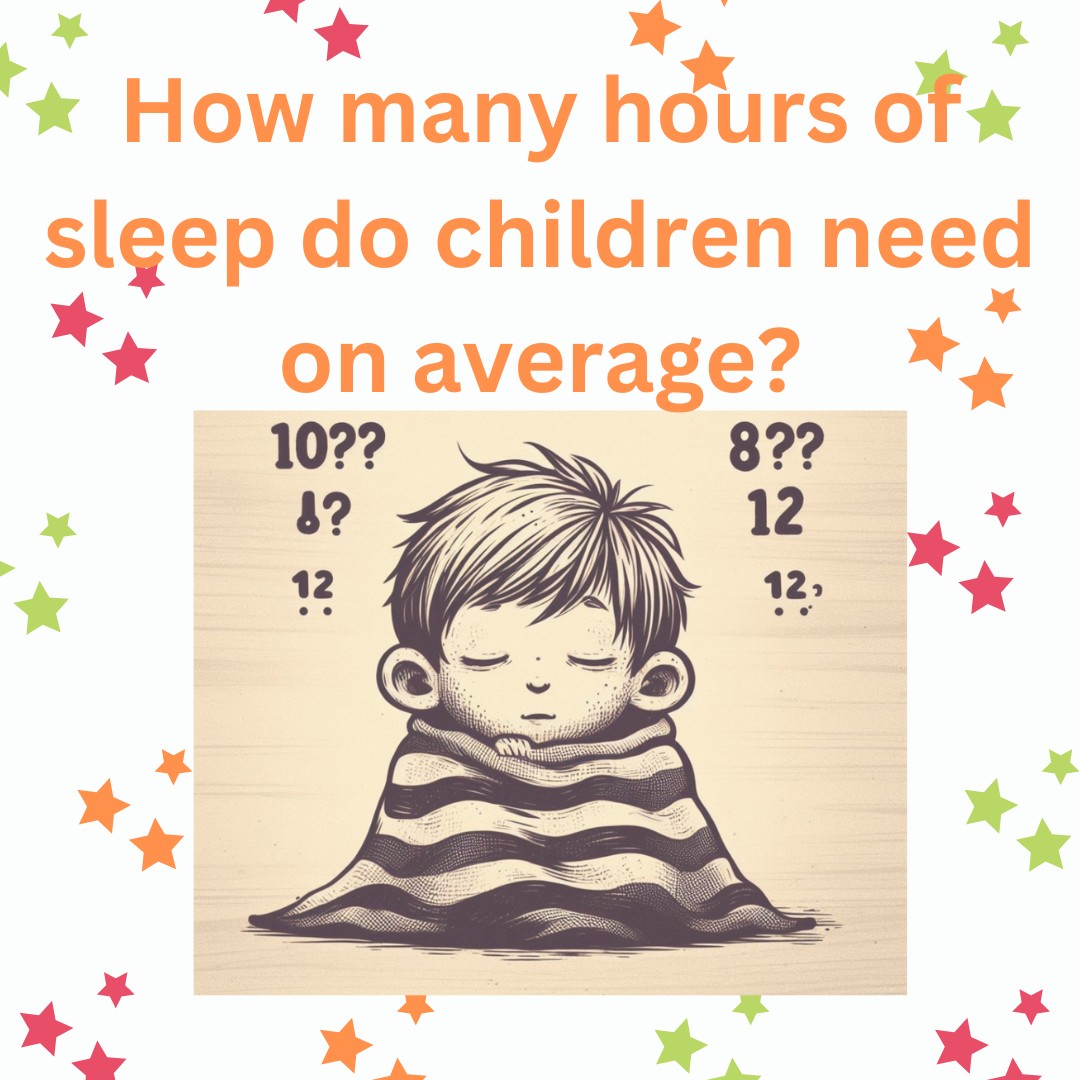Sleep is essential for children’s growth, development, and overall well-being. The amount of sleep a child needs each day varies depending on their age. Ensuring your child gets the right amount of sleep is crucial for their physical health, cognitive development, and emotional stability. Here’s a quick reference guide to how much sleep children need at different stages of their lives:
Newborns and Infants (0 to 12 months): 12 to 17 hours
Newborns and infants require the most sleep of all age groups, ranging from 12 to 17 hours per day. This extensive sleep is vital for brain development, growth, and the consolidation of new information and skills. During this period, sleep is often segmented into multiple naps throughout the day and night, as infants typically wake every few hours to feed.
Toddlers (1 to 2 years): 11 to 14 hours
As children grow into toddlers, their sleep needs decrease slightly to between 11 and 14 hours per day. This stage often includes one or two naps during the day, with a longer stretch of sleep at night. Adequate sleep is essential for toddlers as it supports rapid physical growth, motor skill development, and cognitive processing.

Preschoolers (3 to 5 years): 10 to 13 hours
Preschool-aged children need about 10 to 13 hours of sleep each day. Many children transition from taking two naps to one at this stage, and some may stop napping altogether by age five. Sufficient sleep is crucial for preschoolers as it enhances learning, memory, and emotional regulation.
School-age children (6 to 13 years): 9 to 11 hours
For school-age children, the recommended amount of sleep is 9 to 11 hours per night. As academic and extracurricular demands increase, it is vital to maintain a consistent sleep schedule to support their cognitive functions, attention, and overall health. Children who get enough sleep are better equipped to handle the challenges of school and social interactions.
Teenagers (14 to 17 years): 8 to 10 hours
Teenagers need about 8 to 10 hours of sleep each night. However, many adolescents do not get enough sleep due to busy schedules, academic pressures, and social activities. Sleep is particularly important during these years as it supports brain development, emotional health, and physical growth. Encouraging good sleep hygiene and regular sleep patterns can help teenagers achieve the necessary rest.
Young Adults (17 and Older): 7 to 9 hours
Young adults, starting around age 17, typically need 7 to 9 hours of sleep each night. As they transition into adulthood, maintaining healthy sleep habits is important for managing stress, supporting mental health, and ensuring optimal physical performance. Consistent sleep schedules and creating a restful sleep environment can aid in achieving sufficient rest.
Importance of Adequate Sleep
Adequate sleep is critical for all age groups as it:
- Supports physical growth and repair.
- Enhances cognitive functions such as memory, learning, and problem-solving.
- Regulates emotions and reduces the risk of mental health issues.
- Strengthens the immune system.
- Promotes overall well-being and energy levels.
Tips for Ensuring Adequate Sleep
- Establish a Routine: Consistent sleep and wake times help regulate your child’s internal clock.
- Create a Sleep-Friendly Environment: A quiet, dark, and cool room can promote better sleep.
- Limit Screen Time: Reduce exposure to screens at least an hour before bedtime to enhance sleep quality.
- Encourage Physical Activity: Regular exercise can help children fall asleep more easily and sleep more soundly.
- Monitor Diet: Avoid caffeine and heavy meals close to bedtime.
By understanding and adhering to the recommended sleep guidelines for different age groups, parents can help ensure their children are well-rested and ready to face each day with energy and enthusiasm.
